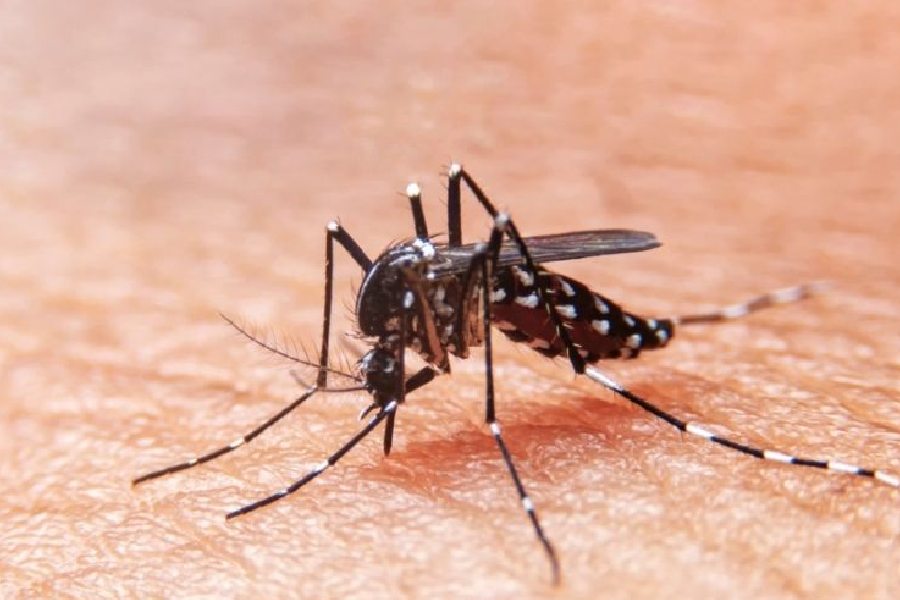Vector-control drives were conducted over the weekend in Jorabagan after a 36-year-old man from the north Calcutta neighbourhood died of "dengue fever" at RG Kar Medical College and Hospital early on Saturday.
Though the death certificate issued by RG Kar mentioned "dengue fever", the Kolkata Municipal Corporation (KMC) contested the conclusion, pointing to a negative dengue test.
KMC officials said the civic body would continue with the drive to identify and destroy potential mosquito breeding sites across the state.
The dengue virus is transmitted by the Aedes aegypti mosquito, which can breed even in a spoonful of water.
"We have undertaken vector-control measures in the Jorabagan neighbourhood where the youth who died lived. The drive is being conducted across the city, too," said the official.
Similar drives are also underway in Bidhannagar and New Town, said officials in the Bidhannagar Municipal Corporation (BMC).
A KMC official said 865 dengue cases were reported from the Calcutta municipal area between January 1 and November 3. The number of dengue cases during the corresponding period last year was 12,334.
"It is difficult to say why the numbers are so low this year. There should be a detailed study to find out the reason," said a KMC doctor.
An official in the state health department said the number of dengue infections across Bengal was "distinctly" lower this year compared with 2023.
A BMC official said 235 dengue infections and two dengue deaths have been reported from the Bidhannagar municipal area since January 1. The municipal area, which has 41 wards, includes Baguiati, Chinar Park, Teghoria, Salt Lake and parts of Rajarhat.
"These figures — 235 infections and two deaths — are based on reports from hospitals and testing centres run by the BMC. They don’t include figures from private hospitals and testing centres," the official said.
"The municipal corporations have fared comparatively better in destroying mosquito-breeding places this year compared with 2023," said an official in the state health department.
The KMC official said door-to-door visits, regular awareness campaigns, cleaning of vacant plots and preventing people from throwing waste into the plots are some of the measures the civic body has been taking since the beginning of the year.
"Earlier, we had problems entering housing complexes as the security personnel often refused entry to our vector-control teams. We have contacted more than 4,000 apartment blocks in the city. As a result, our teams now have easier access to the housing complexes," the KMC official said.
"We checked the terraces and asked residents to regularly change the water in flower vases. Terraces and flower vases are common mosquito-breeding sites. This year we have been able to prevent this to a large extent," said the official.










